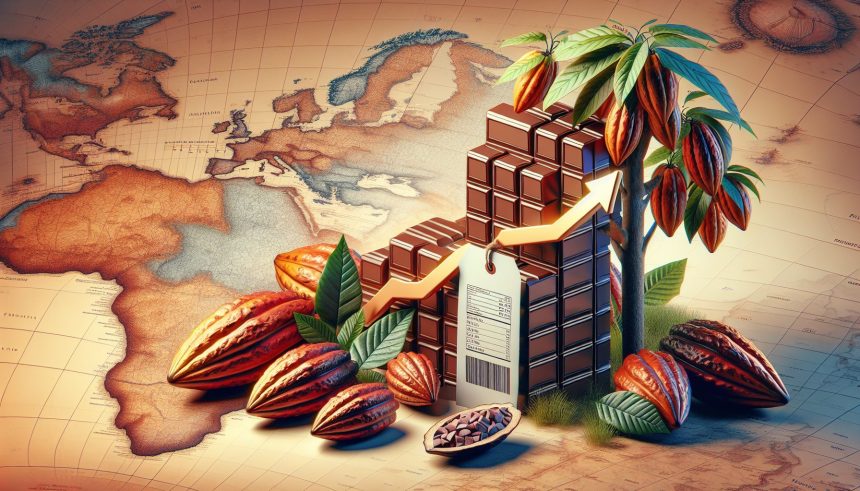The surge in chocolate prices is a consequence of a brewing cocoa crisis in West Africa, particularly in Ghana and the Ivory Coast, sparking global concern. More than half of the world’s cocoa supply comes from these countries, but they are currently struggling with an underwhelming harvest season. Not only does this affect chocolate manufacturers who are desperately seeking alternatives, but consumers should also brace themselves for increased prices for their favorite treats.
Experts warn that this problem will persist, as climate change and socio-political issues continue to impact the future cocoa exports of these countries. A shortage of cocoa beans is predicted this year, causing a significant rise in New York cocoa futures prices. This scarcity is down to unfavorable weather conditions in the main cocoa-producing countries, putting a strain on the global supply chain. Consequently, this could result in a price increase for cocoa-based products, making chocolate treats more expensive.
The crisis appears to be instigated by various factors, including illegal gold mining, climate change, industry inefficiencies, and a rapidly spreading virus, notably the swollen shoot virus. This virus might devastate cocoa trees and reduce cocoa output, leading to substantial economic and social repercussions, especially for cocoa-dependent farmers.
Cocoa shortages driving up chocolate prices
Proactive steps like efficient disease management, sustainability initiatives, and improved farming practices are crucial for tackling this crisis.
There’s mounting concern that this situation will cause permanent slowdowns in cocoa production, potentially ending West Africa’s dominance in the cocoa industry. This could pave the way for emerging cocoa producers, mainly those in Latin America, to affect prosperous markets considerably. American consumers have already felt the impact of this crisis; Easter chocolate prices have surged by over 10%. As the West African crop failures continue to make their mark, the effects are predicted to amplify by the end of the year.
The crisis mainly stems from Samreboi, a key cocoa-producing region in Ghana. Here, illegal mining activities began a few years ago, leading to the uprooting of cocoa trees and significant land pollution, thereby considerably reducing cocoa output. Stakeholders in the chocolate industry – manufacturers, retailers, and consumers – are experiencing significant disruption in their supply chains, with a notable shortage of cocoa beans worldwide. However, environmental bodies and governments are working together to mitigate this crisis with stringent measures against illegal mining and to ensure a promising, sustainable future for chocolate production globally.







